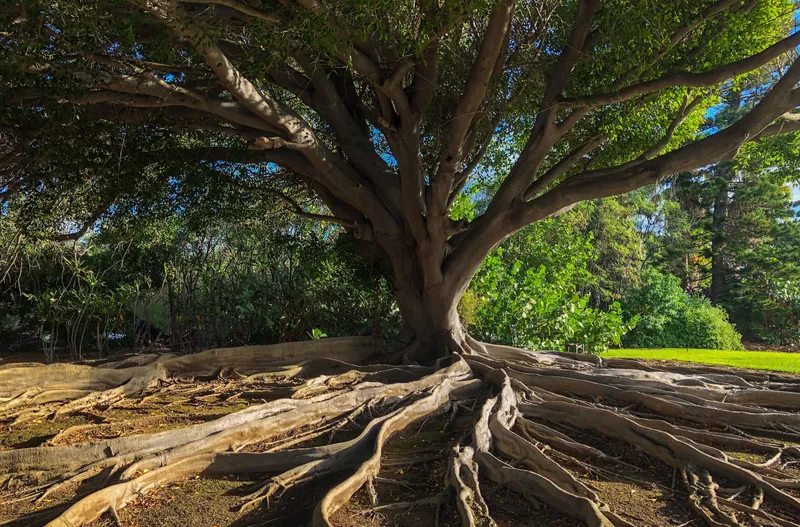Restoring The Ecosystem - Solutions for a Post Pandemic World
Our focus must shift to the larger ramifications of such pandemics. How do we avoid any further catastrophes and how do we ensure sustained development?
Business is back to normal, the new normal… the pandemic has changed how we view our future and value our present. It has taught us how nature can change our life’s course in a blink of an eye. Initially, we strung together connections based on various theories from blaming countries to bats. As we build our understanding, we are realising how tampering with nature can cause damage to human beings as well as the environment.
We also realise that time is staring us in the face and we have to make the right choices to ensure that we do not risk our future. Taking this into perspective, should we continue business as usual and hope that human ingenuity will save us every time, or recognise how all we need to do is to ensure that nature continues to regulate and maintain the essential processes for us.
The last two years were challenging with health and wellbeing taking centrestage in our lives. With the worst hopefully behind us, our focus must shift to the larger ramifications of such pandemics. How do we avoid any further catastrophes and how do we ensure sustained development? These are complex challenges and thus there is no straight answer or a silver bullet.
In an ideal world, we would simply reduce interface, bring in more equity, make public healthcare robust, create a corpus for unforeseen calamities and have mitigation measures and recovery plans in place. It is easier said than done and the question arises where to begin and what to tackle first, everything seems important and urgent.

The ecological lens recognises that everything is interconnected, we all live on this one planet, and all our resources, opportunities, and threats come from it.
Image: Unsplash
Generally, what gets spoken about a lot but practically always gets missed in action is using an ecological lens to look at the pressing challenges of the post-pandemic world and follow it with intervention arising from its understanding. The ecological lens is nothing but recognising that we all live on this one planet and all our resources, opportunities, and threats come from it. Over the last four billion years, nature has evolved, which has resulted in processes that govern the systems that enable us to not just survive but thrive.
Every single human utility is derived from these processes, be it crude oil, food, water or shelter. In other words, ecology is the bedrock of our economy. As biotic and abiotic elements of our planet interact with each other, life thrives. The mosquito larvae are eaten by dragonflies and fish, thus controlling disease spread. The more we destroy ecosystems, the more likelihood of disease outbreaks. The ocean conveyor belt controls climate across the globe and brings nutrients to various parts of the world. Such processes together ensure climate regulation and economic activity.
In nature, everything is cyclical e.g trees rise from the soil and after death return to the soil as nutrients. Whereas, human-invented processes are linear. The crude oil that we extract is returned as carbon dioxide and other toxic gases. This disrupts nature’s patterns and processes. This is the very reason why we face challenges like global warming, climate change, and the rise in pandemic events.
There is scientific consensus on the urgent need to take mitigating actions before it’s too late. If we have to ensure that pandemics are kept at bay, we must recognise how nature kept it under control. Evolution has created ways for life to thrive. With the rise in temperature, increased disease risks and economic uncertainty, we need to ensure that natural processes are restored and ecosystem functioning is promoted. The question is - is it too late, if not do we have the knowledge and means to intervene.
E.O Wilson, one of the greatest scientists of recent times, suggested that we need to restore half of our planet if we have to have any chance at continuing prosperity. This has been widely recognized by intergovernmental agencies and countries and the current decade has been called to be the decade of eco-restoration and rewilding.
The World Economic Forum is making global efforts to restore ecosystems by partnering with HCL to encourage and scale innovations for freshwater conservation and separately targeting the plantation of one trillion trees. We have to do everything we can to regrow forests with wildlife in them and restore our wetlands, grasslands, river systems, coral reefs, and oceans.
Of course, we will have to do other things such as move towards a circular economy and use renewable energy. But restoring ecosystems will ensure that nature continues to do what it does best…support life and allow it to thrive. Perhaps, human ingenuity has never been challenged at this scale and we must hope that we triumph at it. If we succeed at this, it will ensure that we have enough resources to survive and hopefully also fulfil our aspirations.
Edited by Diya Koshy George
(Disclaimer: The views and opinions expressed in this article are those of the author and do not necessarily reflect the views of YourStory.)







